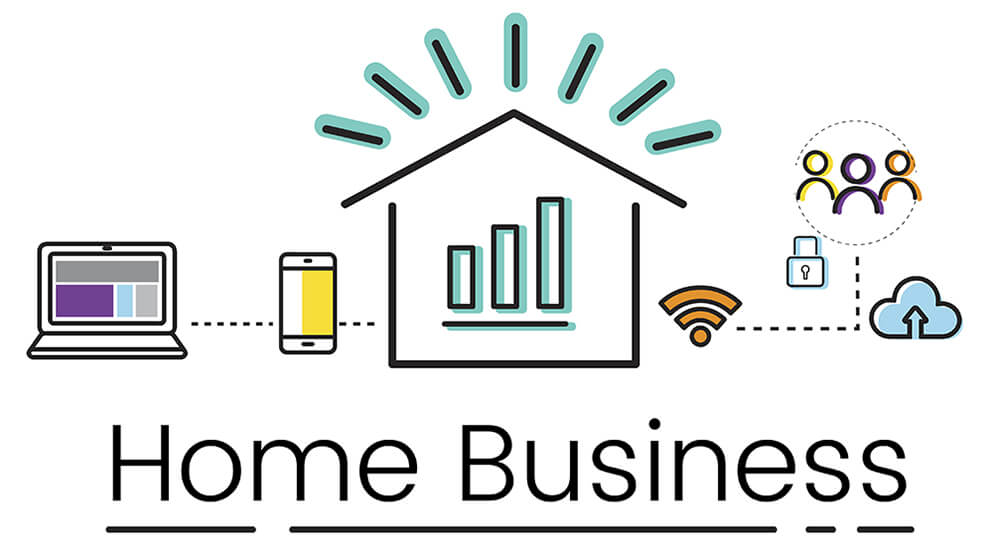Protecting Home Business During an Economic Downturn

Most historians and economists agree that there have been more than 45 recessions in the history of the United States. Some recessions were mild but lengthy, others were short but severe, and a handful have been lengthy and severe. No recession has ever surpassed the one known as the Great Depression, which lasted for more than a decade and had a global impact. However, even a relatively mild recession that lasts for only a brief period can have a devastating impact on small or home-based businesses. According to Investopedia, the financial crisis that hit in 2008 was especially hard on small businesses. Approximately 1.8 million small businesses failed between December 2008 and December 2010, the number of startups dropped dramatically, and small businesses were forced to lay off millions of workers. Despite the grim statistics, it is important to remember that many small businesses survived or even thrived during the 2008 and other recessions. Although there is no way to make your home business completely impervious to a recession, there are steps that you can take to increase your chances of weathering an economic storm.
Do Not Panic
When sales begin to slip or profits start to narrow, it is normal to experience a moment of panic. Momentary panic is an emotional reaction that is driven by fear rather than facts. Panic can become a self-fulfilling prophecy if you focus more on your fears than on fighting for your business. Although you need to stay current on economic news, try to limit yourself to reputable sites and avoid the fearmongering, doomsday sites that are attempting to prey upon your fears by selling you their so-called expert advice.
Protect Your Cash Flow
In the final analysis, cash is more important to the survival of your home-based business during an economic downturn than capital assets, larger profit margins, conversion rates, or market expansion. You must have sufficient cash to cover utility bills, employee salaries, taxes, and other necessities. Take a look at your discretionary spending to find expenses that can be reduced or eliminated. Keep in mind that your goal is to maximize your cash on hand even if a purchase may cost you more later. For example, if you truly need a new computer, you might consider leasing one instead of purchasing it outright, or you might find that you can purchase a used computer that will handle your needs at a much lower cost. Whether you use a credit card, write a check, or purchase on terms, treat every expenditure as money leaving your pocket, and your goal is to keep as much money as possible in your pocket.
Avoid Skimping on Certain Expenses
Although you want to reduce unnecessary purchases, there are some areas that should not be eliminated without serious reflection. If you have built your business by emphasizing the extremely high quality of your products, now is not the time to switch to inferior materials that could do irreparable harm to your reputation. If you have promised employees that you would reimburse them for courses to enhance their skills, keep your promise to those who are in the process of completing those courses or who have recently completed them and are awaiting reimbursement. However, it is permissible to suspend the program temporarily if you feel the need. Do not let your business insurance policies lapse, and do not let your personal health, homeowner, or vehicle insurance lapse. This might be a good time to shop around for policies offering equivalent coverage for less money, though. If you need a low-cost virtual address for your business, check out PhysicalAddress.com. It will help you maintain your privacy during what may be a high-stress time for you. The virtual address service provides creditability and privacy at an extremely low cost.
Watch Your Inventory Levels
Whether you purchase items for resale or manufacture them yourself, inventory on your shelves represents cash that could be used for other purposes. Analyze your sales of each product over the last year to estimate how long your current inventory will last. You want to have sufficient inventory to meet the demands of your customers in a timely fashion, but anything over that level may be surplus. Cut back on your production or orders to keep levels under control. If you have stock that seldom sells, you might consider reducing prices on select items to convert some of your inventory to cash. However, if you have products that are still moving at or near their normal rate, resist the urge to slash prices on them dramatically. Make price cuts with a scalpel, not a meat cleaver.
Try to Pay Your Bills Later
You want to protect your personal and business credit rating, so you need to make sure that all bills are paid within terms. However, you might be able to secure longer terms from your vendors. For example, if you have a record of on-time payments to a vendor offering you 10 days to pay, the vendor might be willing to change your terms to 30 days. If a vendor gives you 30 days to pay and a 1% discount if you pay within 10 days, you might want to sacrifice the discount in favor of a later payment. Using a credit card to pay a bill can essentially allow you to retain your cash for an extra 25 to 30 days; just make sure that you can pay the entire amount you charged when your credit card payment is due to protect your credit, minimize or avoid interest fees, and guard against incurring too much debt.
Encourage Customers to Pay Faster
Look for ways to speed up payments from customers. For example, you might offer a 2% discount if payment is made at the time the order is placed or within 10 days rather than the customer’s normal 30 days. If you have customers with terms of 45 or 60 days, evaluate the possibility of reducing their terms, especially if they are not a major account or if they tend to pay late. Be aggressive about collections. You want to be courteous and friendly so that you retain their business, but you need to make sure that they keep you near the top of their list when they pay their bills.
Enhance Your Communications With Your Best Customers
New customers may be getting harder to find, so take care of your existing customers. Mail them a card, send them an email, or call them occasionally. Let them know that you appreciate their business and their loyalty. Explain that you are willing to work to retain their business and encourage them to contact you with any concerns. Remind them of why they chose your business in the first place; perhaps they value the quality of your products, your efficient delivery, or your exceptional customer service. If possible, schedule a face-to-face meeting with them to discuss their current and future needs so that you can reassure them of your commitment to helping them.
Choose Economical Marketing Strategies
When times are tough, you may not be able to afford full-page ads or a package of television commercials. However, you do not want to abandon all marketing and advertising efforts. Look for free or low-cost alternatives. Maintain your social media accounts, host an online seminar, or issue a press release if you have a truly newsworthy item to publicize. Send a newsletter to customers who have given you permission to do so, use email campaigns instead of mailing catalogs, and participate in charitable events that are likely to include the name of your company as a contributor or sponsor.
Closing Thoughts
Economic downturns are inevitable, but they are also survivable. Furthermore, home-based businesses that weather a downturn tend to emerge stronger and more resilient. Treat every bump as an opportunity to learn how to be better prepared for the next downturn.



